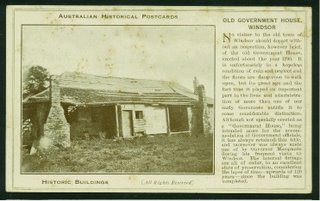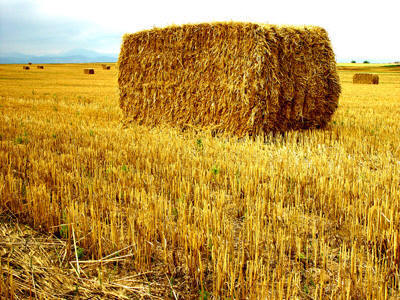A history of wikiphobia in Sydney
Before the launch of The Project the message was clarified. It was firstly market tested in small community newspapers, apparently with no negative reaction from local historians:
City Weekly 30 June 2005 Tap into history
"Members of the public will ... be able to submit suggestions for the dictionary which will be reviewed by the board."
Sydney Central 6 July 2005 Sydney'’s defining tales
"It's going to take years", Dr Fitzgerald said "We've already commissioned about 600 articles and that's just the start". ... The Project ... will rely on input from local historical societies and libraries.
...a number of cities across the globe have been working on compiling their history in similar ways. .. The ability to add to the resource so it reflects the City as it changes is, according to Dr Fitzgerald, one of the strengths of presenting the information online."
Then it was into a 'big' newspaper, with national circulation amongst Australia's commercial sector and business elite:
Australian Financial Review 30 August 2005 Work begins on online Sydney dictionary
"Work has begun on a dictionary of Sydney that will be similar to Wikipedia online encyclopaedia.
Hundreds of historians, academics and institutions are expected to contribute entries.
It will be web-based but could also spin off various hard and soft-copy publications.
The use of web technology means there is no limit to the size of the dictionary. The English version of Wikipedia the online encyclopaedia that began in 2001, boasts more than 700,000 entries. But unlike Wikipedia, contributors to the Dictionary of Sydney will be by invitation only - although members of the public will be able to submit suggestions."
After the launch the media remained on message, with once again the minnows swallowing the hook without question:
MX 7 June 2006 Digi-Sydney launch near
"It [the dictionary] will be compiled by experts from the University of Sydney with the help of the City of Sydney Council."
Inner City Courier 13 June 06 Sydney'’s new centre point of reference "The university's Professor Stephen Garton and City of Sydney historian Dr Shirley Fitzgerald will lead hundred of researchers, who will be contributing to the project. ... She said all contributions will be read and considered for inclusion on the site but she is "not promising to publish everything"
The main state-wide 'quality' broadsheet then also followed the authorised line:
Sydney Morning Herald 14 June 2006 Tale of one city - interactive and online "There will be something on every suburb"” said Dr Shirley Fitzgerald, the City of Sydney council historian who is helping to co-ordinate the mammoth project. "You never know what stories people are going to come up with"”.
The dictionary may be similar to the online encyclopaedia Wikipedia, for which hundreds of people contribute information each day.
Members of the public will be encouraged to submit suggestions, but they will have to convince a panel of historians that their story is accurate before it is included.
"There are a heap of people who want to get their information about Sydney from the internet, not from books - it'’s not going to replace books of course" Ms Fitzgerald said.
"Because it is online, there are no size limits, and the thing can just keep growing."
Professor Stephen Garton, Dean of the Faculty of Arts and actively involved in the project, said the concept of producing an interactive city history in online form was a world first. "“It will be unusual or unique in terms of city histories" Professor Garton said."
Notice the threads running through these media stories: ordinary folk can provide 'suggestions'’, but topic selection and writing will be managed by invited experts (their authentic version of history will be followed); it won'’t publish everything received, you never know what people will come up with (stories that don'’t fit the line will be repressed); the online format offers wonderful new opportunities to continually grow and expand the dictionary (by a linking of databases - nothing will escape its purview); it is not going to replace books (don'’t scare the commercial publishing industry to which too many academic historians remain tied). It is not a wiki (the media still seem to be having trouble getting this message).
Perhaps the most telling of these quotes is from the post-launch SMH article: "Members of the public will ... have to convince a panel of historians that their story is accurate"”. Apparently, a bench of magisterial historians will be deciding what is Sydney's history and what is not. And like all judges, they are unelected and on the public payroll. Necessary, of course, for real independent and impartial judges of law, but a dangerous path for historians to tread. "Authentication" may be their mantra, but who authenticates the authenticators and their authentications?
The uncritical acceptance of these messages by Sydney's media is evident in their headlines: 'tap, tales, digi, interactive, online' - its all so whizz-bang, not dull old boring history stuff; 'new centre point' suggests the Centrepoint Tower and one of its analogues the hypodermic syringe, alluding to the soporific escapism of well-massaged 'information'; while 'tales of one city' unmistakably suggests that other city where violent retribution awaits those who fail to conform to the new regime.
Wikiphobia is being used to ensure that the dictionary will not be a democratic exploration of Sydney's many histories, but an overwhelming and ongoing (re)statement of a particular view of Sydney's history and its future. Let's hope that independent publishers (paper and online) do survive - they may be the only source of dictionary-free history in the Sydney of the future.

